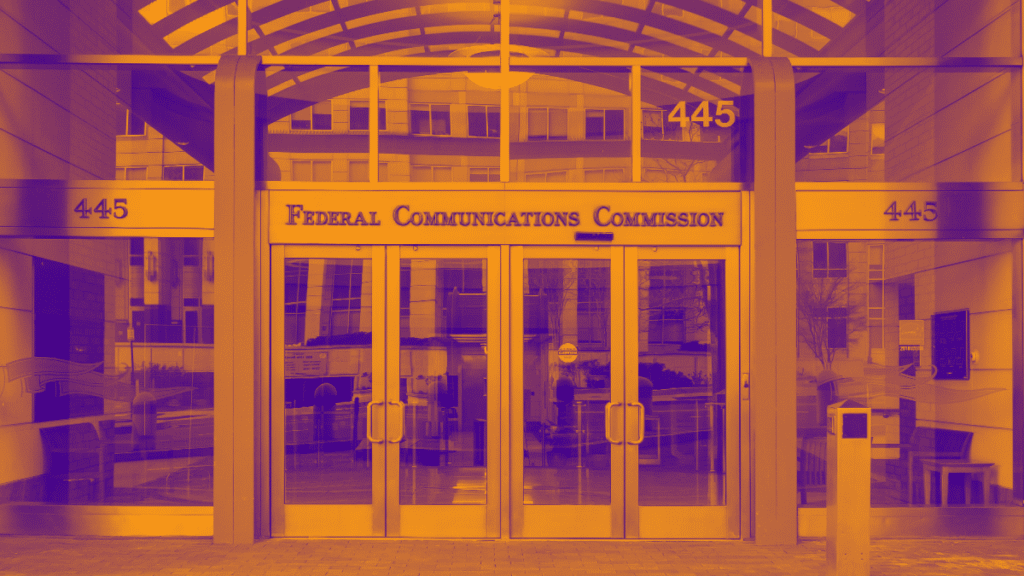Net Neutrality is True Target of GOP Obstruction Over FCC Nominees
Art Brodsky / Aug 4, 2023Art Brodsky is a retired telecommunications policy professional.
This fall, Senate Republicans will unleash the latest stage of their proxy war against one of the most pro-business regulations ever enacted.
The proxy targets are two Democratic nominees for the Federal Communications Commission – Geoffrey Starks, an incumbent, and Anna Gomez, who, if confirmed, would give the Commission a 3-2 Democratic majority.
The pro-business regulation? It’s known by the unwieldy name of Net Neutrality. Republicans don’t want the FCC to be at full strength with the addition of the fifth commissioner because their ideological myopia blinds them to the value of a policy they should wholeheartedly support.
The concept behind Net Neutrality is alarmingly simple: the telephone and cable companies can’t play favorites among their business customers or, to put it more bluntly, aren’t allowed to be paid to play favorites among customers. An illustration: Let’s say some years ago I wanted to call my local hardware store. However, instead of being connected to that store, imagine that I was connected to the hardware department in a local Sears department store. Imagine this happened because Sears paid the telephone company to reroute the call.
In this example, who wins and who loses? The phone company wins because it gets more money. But every small business that has calls redirected would be a loser, both in revenue and customers. In the parlance of the times, those who let their “fingers do the walking” would find themselves in a place they didn’t want to go, with no way out.
The Tangled History of Net Neutrality
In the real world, all of those non-telephone company businesses were protected by federal law, the Communications Act of 1934, which forbade phone companies from discriminating among customers. When Republicans oppose Net Neutrality, complaining that it was never needed before and so shouldn’t be now, they overlook the fact that neutrality was baked into online communications from the very start. When phone companies offered service over a telephone line, that service was regulated by the Communications Act.
Then came what was called “cable modem” service – what we today call broadband, offered by cable, not telephone, companies. The regulatory world was in a quandary about what to do with it. The cable industry, of course, didn’t want the FCC to become involved. In the throes of the “Information Superhighway” hype of the time, William Kennard, the chairman of the FCC under President Bill Clinton, agreed that the FCC didn’t want to do anything that would hinder the new technology from being built.
It was only after George W. Bush was elected that a misguided FCC decided that new broadband technology wouldn’t be subject to the same regulation as regular telephone service. There were many regulatory proceedings and court cases that involved much dancing on heads of pins over whether broadband was a “telecommunications service” or an “information service,” all of which eventually culminated in the 2005 U.S. Supreme Court case National Cable and Telecommunications Association v. Brand X Services. In a 6-3 ruling, the Court said that the FCC had come to the right conclusion that cable broadband was a deregulated “information service,” but that the FCC was justified in doing what it did under the Chevron doctrine that gives deference to the expertise of administrative agencies.
Had the case gone the other way, cable and, later, telephone company, broadband would have had to follow regulatory restraints, including non-discrimination. That concept, embodied in Title II of the Communications Act of 1934, is based on the centuries-old doctrine of “common carriage,” that is that companies that transport good or services, whether railroads or telephone companies, must charge every customer the same rate for the same service and must make all services available to each customer.
Because they didn’t, the concept of Net Neutrality came into being, so named by Columbia University law professor Tim Wu, as a solution for what the law otherwise provided.
In theory, Congress could have passed legislation enshrining non-discrimination or other regulatory requirements. However, then, as now, the cable and telephone companies had profound influence over the Republicans on the relevant committees. In addition, the Communications Workers of America (CWA), seeking to get in the good graces of their employers, also opposed legislation, and Democrats didn’t want to cross the union.
As a result, the Net Neutrality concept has lived and died in regulatory purgatory. The Obama FCC instituted Net Neutrality regulations. The Trump FCC repealed them. Now whenever anything FCC-related comes before Congress, the debate continues.
Today’s Debate, Same As Yesterday’s
The telecom industry fights every attempt at re-regulation, saying that no problems have cropped up and regulation would curtail their ability to provide service. Public-interest and other groups contend that regulation is needed when, not if, the industry steps out of line. And, they note that industry’s spending on new infrastructure- including more broadband construction– rose when in response to consumer demand regulations were in place. Regulations play a “minor role” in capital expenditures, the group Free Press found in a seminal study. Similarly, spending on networks dropped after Net Neutrality rules were repealed.
It is disappointing that today, any time Republicans talk about Net Neutrality, they not only ignore the origins and necessity, but they narrow the focus of alleged harms only to the telecommunications companies like Verizon or Comcast while ignoring the benefits to the vast rest of the business community.
For example, Sen. Ted Cruz (R-TX), the senior Republican on the Commerce Committee, said at the confirmation hearing for the FCC nominees last month, “Democrat regulators remain hell-bent on forcing antiquated telephone monopoly rules on the competitive broadband industry.” The focus of this statement, as with the rest of the questioning, was his concern for the welfare of Big Telecom, while ignoring small business, a traditional GOP constituency.
When Cruz tossed off the comment “as a Democrat nominee you have to say Net Neutrality rules are great,” he declined to recognize the great benefits to the rest of the businesses in the country, to say nothing of the welfare to consumers, that the non-discrimination principle has fostered. What Cruz called “antiquated,” could also be called “originalism,” to use a term the U.S. Supreme Court tosses out from time to time that Republicans claim to respect. That means sticking to basic, long-held principles.
Here is the question for Republicans: Which should be considered pro-business? Should it be the welfare of the big telecom companies, or should it be every other business in the country? A rational observer would choose Door No. 2.
Ironically, Sen. Cruz’s Republican colleague, Sen. J.D. Vance (R-OH) unwittingly demonstrated another need for the Internet rules during the confirmation hearing while discoursing on the issue of so-called censorship by social media companies.
At the same hearing, Vance said: “I think about how communications have changed in this country. It seems preposterous to me to think that 40 to 50 years ago you would have had your telephone service phone turned off for having the wrong political views.”
What Vance failed to realize is that the reason such a notion was “preposterous” is because of the protection made possible by the non-discrimination features of the “antiquated” communications laws that today’s Republicans denigrate and dismiss.
It would be better if Republicans ditched the ideological blinders, learned the lessons of history, realized that those lessons are still needed today, and acted to secure for businesses and consumers the protections that were mistakenly taken away. Even Republican voters, by large margins, support bringing back Net Neutrality rules, according to a poll conducted last year. As the Washington Post reported, "The findings show a contrast between Republican voters and their elected representatives on Capitol Hill, where Republicans have been seeking to block a Democratic nominee whose confirmation would likely pave the way for the return of the rules."
Republicans would do well to listen to their voters. Some of the companies with which they are siding, the Internet Service Providers, are among the least popular in the country. GOP politicians and their constituents should work with Democrats to come up with solutions that restore the principles of fairness that had governed the industry, and protected consumers, for decades.
Authors

